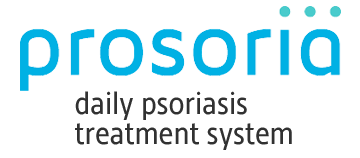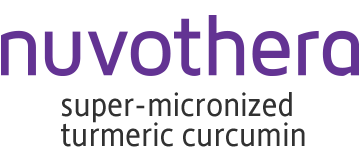
What is Scalp Psoriasis?
Psoriasis is an autoimmune condition that can appear as thick red, dark brown, or violet patches of skin with dry scales or plaques anywhere on the body. These plaques can be itchy or sore, or both and typically appear on the legs, neck, and arms, but can appear anywhere on your body. They normally appear on your elbows, knees, scalp, and lower back. Other types affect areas such as the nails or the joints. It is possible to be affected by more than one type of psoriasis.
Scalp psoriasis is a chronic skin condition that affects 2-3 percent of the worldwide population and can appear on the back of the neck, at the hairline, on the forehead, and around the ears.
However, it is uncommon for people with psoriasis to have only scalp psoriasis.
According to the National Psoriasis Foundation, about half of the people with psoriasis also have scalp psoriasis.
Is Psoriasis contagious?
Scalp Psoriasis is not an infectious disease. Unlike contagious bacteria such as MRSA, psoriasis is not contagious, so there is no risk of catching it from others by physical contact or sexual transmission.
How do I Identify Scalp Psoriasis?
Scalp psoriasis first appears as small red bumps that grow to appear as an elevated patch of flaky, scaly skin that affects either a small area or the entire scalp.
These patches may look like dandruff and have a silvery appearance. Although there are different types of psoriasis, the most common type is chronic plaque psoriasis which typically affects the scalp, back, knees, and elbows. Scalp psoriasis can also show up on, in, and around the ears. Typically, symptoms appear on the exterior of the ear and in the creases behind the ear. Sometimes the condition shows up in the inner portions of the ear.
The cause of Scalp Psoriasis is unknown
Although the exact cause of scalp psoriasis is unknown, research suggests that scalp psoriasis may have a genetic component that causes the immune system to malfunction. For individuals predisposed to the condition, their environmental conditions may play a role in triggering outbreaks. Those with a family member with scalp psoriasis have a greater risk of developing the condition.
What are the triggers for scalp psoriasis?
Environmental triggers usually trigger scalp psoriasis and it is believed that you must have specific genes to develop the disease. That does not mean that you will develop psoriasis if you have these genes.
It is thought that, in psoriasis patients, T-cells that fight off bacteria, fungi, and viruses become overactive. This increases the number of healthy cells resulting in an accumulation of dry flaky cells which appear scaly. These new skin cells, which usually take weeks to form, can form in days in people with psoriasis.
The symptoms of Scalp Psoriasis vary but typically include itchiness, flaky, dry skin, and reddish patches
The symptoms of scalp psoriasis may come and go and may vary in intensity. Consult with a dermatologist for a complete diagnosis and to develop a treatment plan for your lifestyle. Regardless of the severity of scalp psoriasis, there are options for treating the symptoms below.
- • Reddish patches, or skin plaques, on the scalp which vary from barely noticeable to inflamed and thick
- • Dry scalp, which may cause the skin to crack and bleed
- • Itching varies from mild to intense, depending on the intensity and length of the outbreak
- • Bleeding is caused by scratching which may make the patch larger.
- • Temporary hair loss leads to temporary bald spots. A patient's hair will typically regrow after a flare-up goes away or the psoriasis is effectively treated.
Is Scalp Psoriasis related to dandruff or eczema?
Scalp psoriasis is a long-term autoimmune disorder that can cause extreme itching due to skin inflammation. Affected areas of the scalp and typically appear as inflamed, thick, dry, or reddish patches.
Dandruff or seborrheic dermatitis is a different skin condition that is not contagious but can also be related to inflammation and appears as small flakes of dried skin that fall from the scalp.
Eczema is yet a different skin condition but can look similar to psoriasis. It typically appears more as a rash inside the elbows and behind the knees and causes more intense itching than psoriasis.
Treatment plans can help manage scalp psoriasis
Scalp psoriasis can be stubborn. Treatment plans should aim to slow the growth of skin cells and to reduce future outbreaks through the treatments, including those listed below.
A good resource to consult when forming a treatment plan is the National Psoriasis Foundation Seal of Recognition and Product Directory that recognizes safe over-the-counter products for daily skin care use.
Although there is no cure for scalp psoriasis, several treatments are available to help with the symptoms.
- • Over-the-counter (OTC) products such as Salicylic acid, Coal tar, scalp oils, moisturizers and, medicated shampoos
- • Anti-itch treatments such as calamine, hydrocortisone, camphor, diphenhydramine hydrochloride (HCl), benzocaine, pramoxine hydrochloride, and menthol
- • Prescription products including steroid injections or topical steroids for use directly on the affected areas
- • Strong derivatives of Vitamin A or vitamin D (Calcipotriene)
- • Light treatments (phototherapy)
- • Nonsteroidal anti-inflammatory drugs (NSAIDs)
- • Biologics and biosimilars
- • Oral pills
- • Antimicrobials
Hair loss causes and cautions
People with scalp psoriasis may suffer hair loss ranging from thinning to wide-spread bald spots. This is typically a temporary condition as any lost hair is likely to grow back.
Some of the causes of hair loss from scalp psoriasis include:
- • Aggressively removing the thick scales, which may also contain your hair
- • Frequently scratching your itchy scalp may also pull out your hair
- • The topical application of harsh drugs may damage and weaken your hair
- • In addition to scalp psoriasis, extreme stress, poor diet, sudden weight loss, and certain drugs may trigger a condition called telogen effluvium, a form of temporary hair loss that may occur following a traumatic event or shock.
Wearing hats and scarves
Scalp psoriasis may cause discomfort and embarrassment. Wearing a hat is a good way to cover the affected areas. Be sure that any head covering fits loosely so as not to irritate or chafe the area causing psoriasis to flare up.
A headscarf to hide the flakes is another option that may help you feel better about being in public.
About sun exposure and Scalp Psoriasis
The ultraviolet light component in sun exposure is an effective way for many people with psoriasis to help clear their skin. Gradual sun exposure is recommended; however, avoid overexposure that results in sunburn which may trigger a new psoriasis outbreak.
Are other conditions linked to Scalp Psoriasis?
While scalp psoriasis is not caused by a poor diet or a particular lifestyle, inflammation linked to psoriasis can affect other parts of your body.
Inflammation is your body's built-in natural defense system and is normally triggered by a cut or an infection. That inflammation causes blood vessels to increase in size around the injury and signals white blood cells to come in to repair any damage. The inflammation stops when the area is healed. Sometimes yeast and fungus that normally reside on our scalp can trigger psoriasis so antifungal shampoos are sometimes helpful. Products containing turmeric or black seed oil have anti-inflammatory properties and can also be helpful.
For people with psoriasis, inflammation is more active. . The body continues to create new skin cells even though they're not needed and at a rate over six times greater than normal. This process results in plaques and scales on the skin.
Should people use special shampoos formulated for Scalp Psoriasis?
Shampoos that are made specifically to treat scalp psoriasis, rather than to benefit your hair, may reduce itching, redness, and flaking. The active ingredients are typically coal tar (to slow the growth of skin cells) and salicylic acid (to help shed dead skin cells) or shampoos containing antifungal ingredients such as selenium hydrochloride, ketoconazole, or zinc pyrithione. Be careful not to scrub the scalp too vigorously as it may worsen the condition.
Products are available over the counter and by prescription. The over-the-counter products are typically safe to use daily. However, some of the prescription scalp treatments should only be used for short periods.
Understanding scalp psoriasis will help you take more control over your life
Dealing with psoriasis can often be a challenge, but the more you know about psoriasis and its related conditions, the more you can do to take control of your health. While having psoriasis might mean you have a higher risk for developing other health issues, the good news is that psoriasis is treatable. If you're looking for a new non-prescription way to treat your psoriasis, we invite you to try Prosoria's™ dermatologist-tested, once-daily, two-step psoriasis treatment system-- which has been clinically proven to not only relieve psoriasis symptoms but also help prevent recurrences. It uses a skincare regimen approach to maximize effectiveness with added natural botanicals to treat and soothe psoriasis.
So, whether you only have scalp psoriasis, or you have both psoriasis and other conditions, staying positive and taking steps to improve your health is essential to living a happier, healthier life. If you have questions about how Prosoria™ can help your psoriasis symptoms, you can sign up for our newsletter, follow us on social media, shoot us an email, or visit prosoria.com for more information! We are available to support you on your journey to clearer skin today
